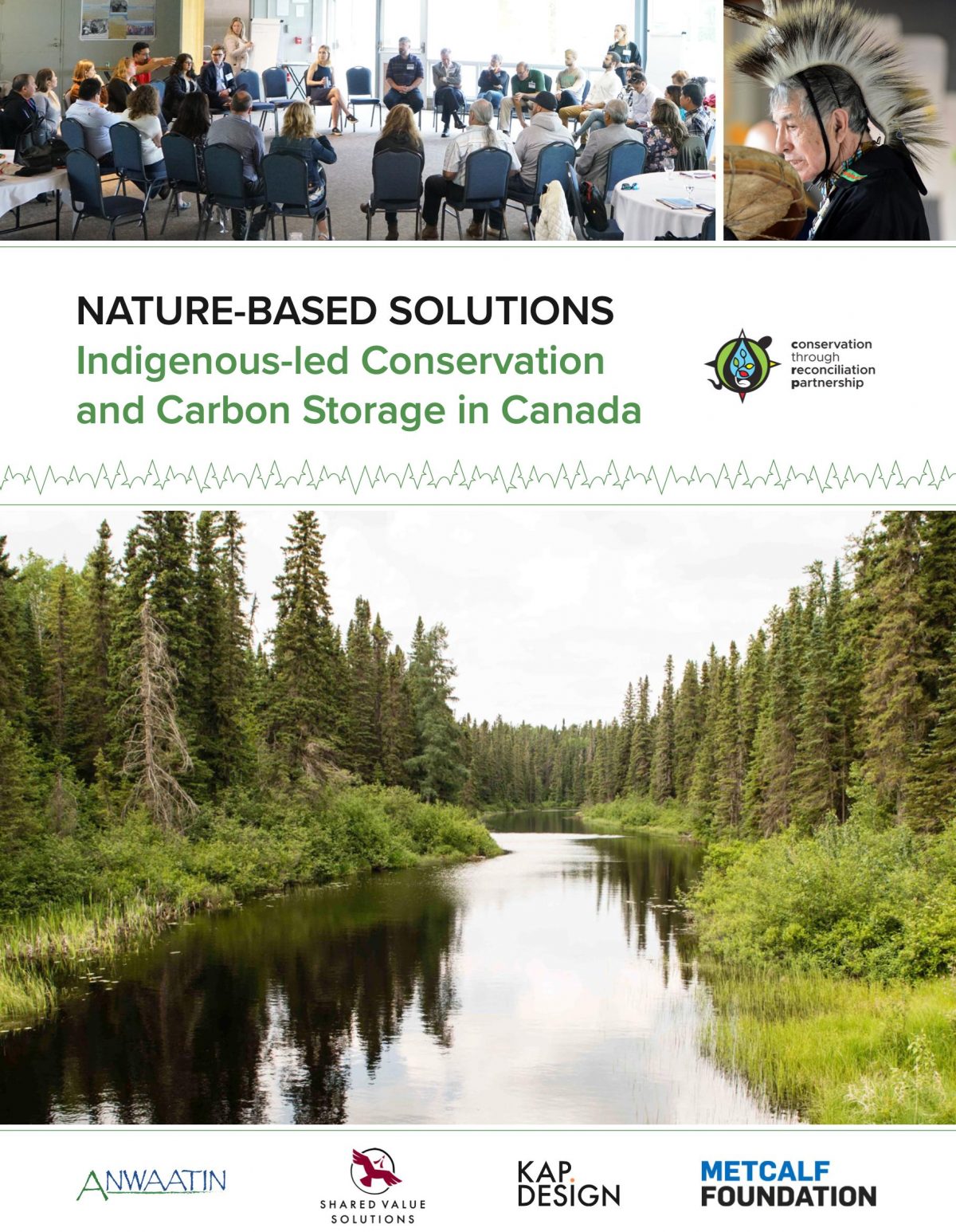A range of opportunities and challenges for Indigenous-led conservation and carbon storage in Canada are identified in a new Metcalf-funded report from the Conservation through Reconciliation Partnership.
Emerging from a two-year research and engagement project, the report is informed by five components: a literature review, in-person gathering, individual interviews, the creation of eight short films, and mapping work that identifies carbon storage values across the country in relation to Indigenous Protected and Conserved Areas.
Challenges related to governance (e.g. jurisdiction), operations (e.g. financial constraints), and social (e.g. community buy-in) are identified and explored, along with opportunities that could emerge by aligning Indigenous-led conservation with carbon values, including support for economic diversification, cultural revitalization, and building a conservation economy.
The Conservation through Reconciliation Partnership
The Conservation through Reconciliation Partnership is a seven-year, $5.6 million initiative that brings together over 30 leaders from communities, NGOs, academia, and government who are committed to supporting Indigenous-led conservation across the country. The Metcalf Foundation is proud to be one of those partners. Hosted by the University of Guelph, the initiative’s objectives include:
- creating a network for conservation through reconciliation to further support Indigenous-led conservation in Canada;
- ensuring ethical and collaborative research with a focus on five interconnected research priorities: international policy, domestic law and policy, knowledge systems, Indigenous conservation governance, and biocultural indicators and outcomes; and
- increasing capacity amongst Indigenous nations and communities, the conservation sector, and the general public through hosting dialogues and co-creating knowledge and resources for dissemination.
More about the partnership’s important work can be found on:
- Website: conservation-reconciliation.ca
- Facebook: @IndgLedConserv
- Instagram: @indigenousledconservation
- Twitter: @IndgLed_Conserv


